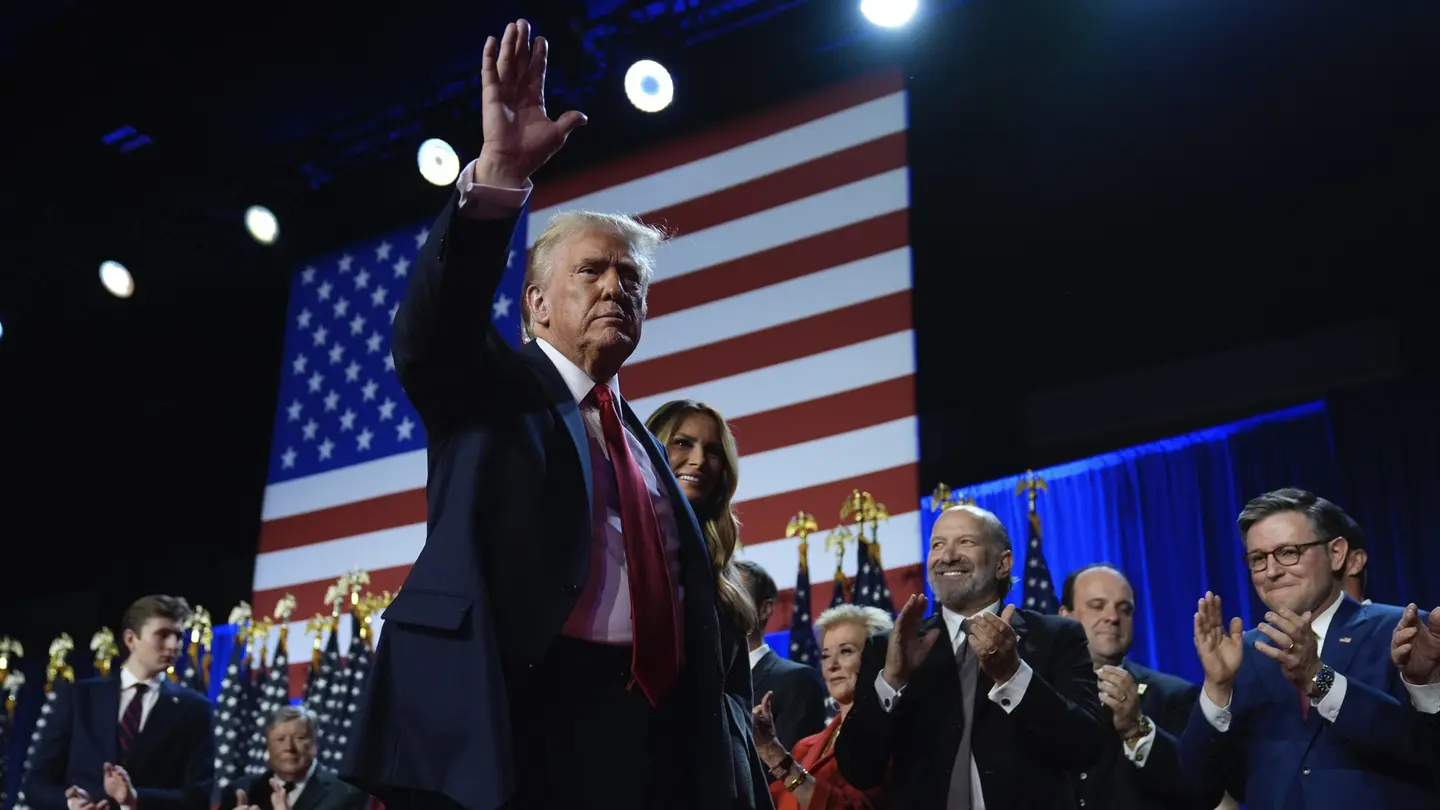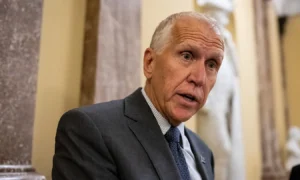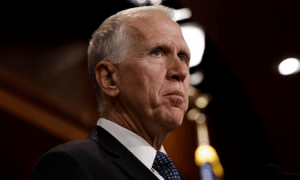Brian Leija, a 31-year-old small-business owner from Belton, Texas, was not surprised that an increasing percentage of Latino men his age voted for Donald Trump for president this year. Leija voted for Republicans in 2016 and 2020.
Leija’s reasoning was straightforward: he said he had profited from Trump’s economic policies, particularly tax cuts.
“I am a blue-collar worker,” Leija explained. “So, tax breaks for small businesses are ideal for what I do.”
DaSean Gallisaw, a consultant in Fairfax, Virginia, said he voted for Trump because Democrats’ words did not match their actions. “It’s been a very long time since the Democrats ever really kept their promises to what they’re going to do for the minority communities,” he pointed out.
Gallishaw, 25, who is Black, had voted for Trump twice. This year, he believes the former president’s “minority community outreach really showed up.”
According to AP VoteCast, a countrywide survey of more than 120,000 voters, Trump increased his percentage of Black and Latino voters compared to 2020, when he lost to Democrat Joe Biden, particularly among men under the age of 45.
Even though Democrat Kamala Harris gained a majority of Black and Latino voters, it was insufficient to give the vice president the White House due to Trump’s wins.
The economy and jobs made males under 45 more amenable to Trump.
Overall, voters ranked the economy and jobs as the most critical issues facing the country. This was also true for Hispanic and Black voters.
Approximately three in ten Black men under the age of 45 voted for Trump, roughly doubling his support in 2020. Young Latinos, particularly young Latino men, were more favorable to Trump than in 2020. Approximately half of young Latino men voted for Harris, while around six in ten voted for Biden.
According to Juan Proaño, CEO of LULAC, the largest and oldest civil rights group for Hispanic Americans, the election results demonstrate that Trump’s economic message resonated with Latino voters.
“I think it’s important to say that Latinos have a significant impact in deciding who the next president was going to be and reelected Donald Trump,” Proaño said. “(Latino) men certainly responded to the populist message of the president and focused primarily on economic issues, inflation, wages and even support of immigration reform.”
For more than a decade, Rev. Derrick Harkins, a minister of Abyssinian Baptist Church in New York, has been in charge of outreach to Black American religious congregations. He claimed that Trump’s hypermasculine appeal won over some young men of race.
“I think that Trump with this bogus machismo has been effective amongst the young men, Black, white, Hispanic,” Harkins told me. “And I think unfortunately, even if it’s a very small percentage, you know, when you’re talking about an election like we just had it can be very impactful.”
Black and Latino voters’ preferences have altered after 2020.
While around four in ten young voters under the age of 45 from all racial and ethnic groups listed the economy as the most pressing issue confronting the country, older white and Latino voters were more likely to cite immigration as the most pressing issue, with roughly one-quarter of each doing so.
Young Black voters overwhelmingly described the economy as “not so good” or “poor,” compared to almost half of older Black voters. The majority of Latino voters, regardless of age, thought the economy is in horrible health.
That belief made it more difficult for Harris to highlight the actual figures in the economy, which indicate that inflation has fallen considerably, unemployment is still low, and salaries have increased. These voters simply did not feel the progress.
Alexis Uscanga, a 20-year-old college student from Brownville, Texas, had never voted in a presidential election before. He cited the economy and immigration as the reasons he voted for Trump.
“Everything just got a lot more expensive than it once was for me,” Uscanga told reporters. “Gas, grocery shopping even as a college student, everything has gone up in price and that is a big concern for me and other issues like immigration.”
Uscanga has grown up selling tamales, secondhand automobiles, and washing cars, so he understands how difficult it can be to make a life. When Trump was president, it did not feel that way, he stated.
“Under the Trump presidency more opportunities were abound,” Uscanga told the press. “I was not very fond of President Trump because of his rhetoric in 2016 but I look aside from that and how we were living in 2018, 2019, I just felt that we lived a good life no matter what the media was saying and that’s why I started supporting him after that.”
Though the shift in votes among Black and Latino men was significant, Trump would not have won without the support of a majority of white voters.
“Men of color are really beginning to emerge as the new swing voters,” said Terrance Woodbury, co-founder of HIT Strategies, a polling and research business that did research for the Harris campaign.
“For a long time, we discussed how suburban women and soccer mothers may influence election outcomes. Men of color are now emerging as such, particularly younger men of color who are less ideological, less loyal to a single party, and more prone to bounce between parties or in and out of the electorate,” Woodbury added.
The desire for strong leadership makes Trump more appealing.
A majority of people nationwide felt Trump was a strong leader, while just less than half said the same about Harris. Among Hispanic voters, even more saw Trump as a strong candidate. Approximately six out of ten Hispanic men described Trump as a strong leader, compared to 43% in 2020. Approximately 50% of Hispanic women believed Trump was a strong leader, up from 37%.
Black men and women were about twice as likely as in 2020 to call Trump a strong leader.
David Means, a Black buying manager in Atlanta, did not vote in the election because he believed neither Harris nor Trump were making the correct appeals to Black men. However, the results of the election did not disappoint him.
“I’m pleased with the results. I don’t feel slighted. I was not let down. I wasn’t rooting for Trump or Kamala, but I didn’t want a woman in that position, he explained. And if it were a woman, Means stated, “I’d rather have a really strong and smart woman, for example, like Judge Judy.”







